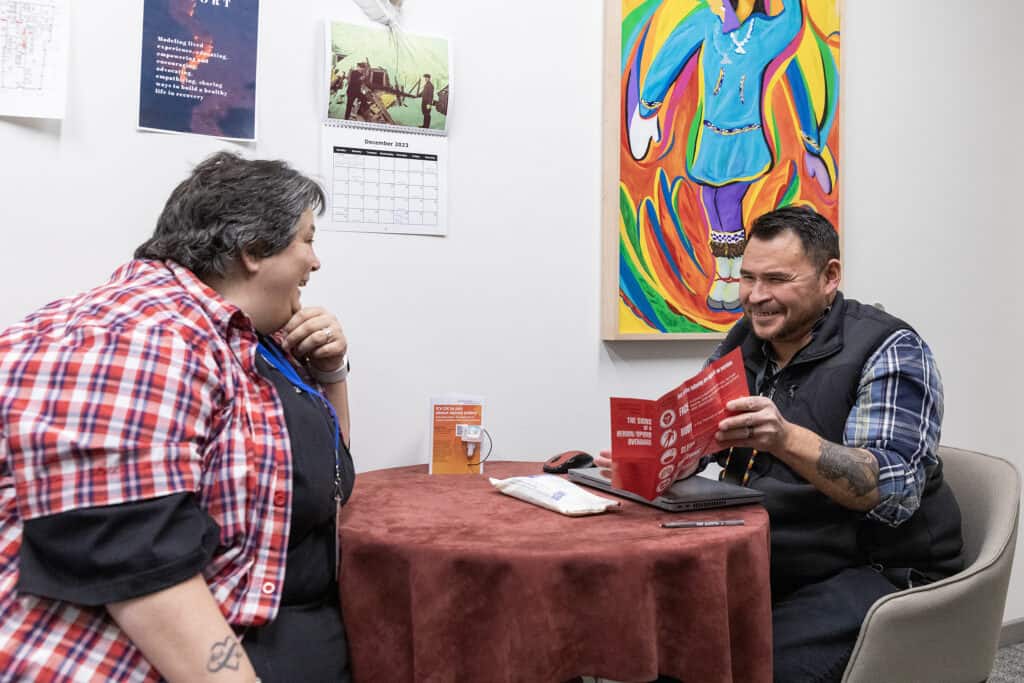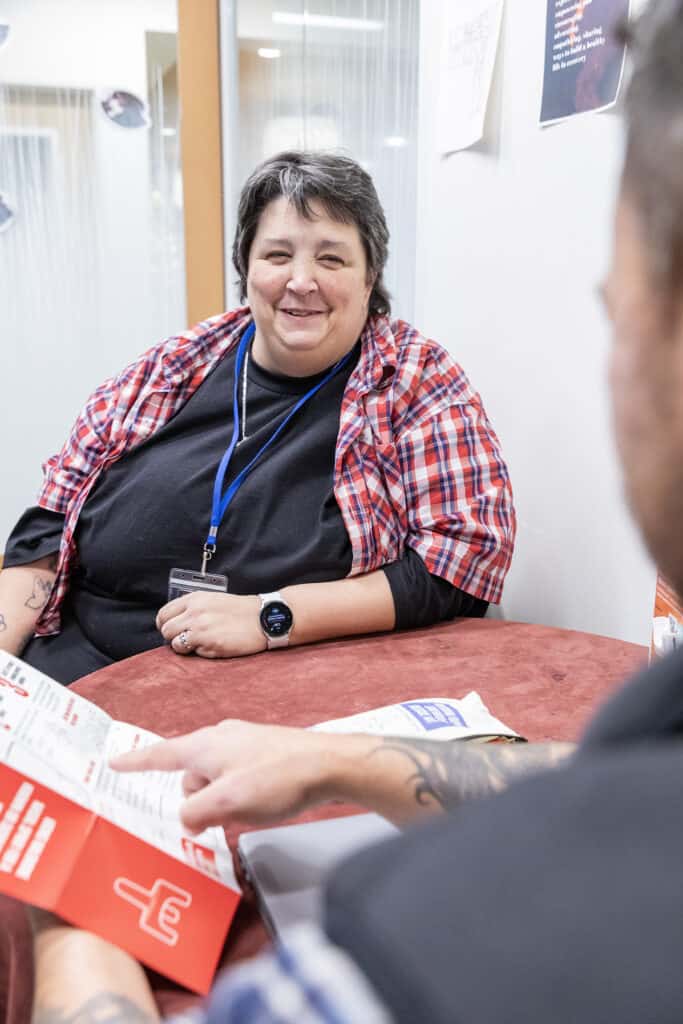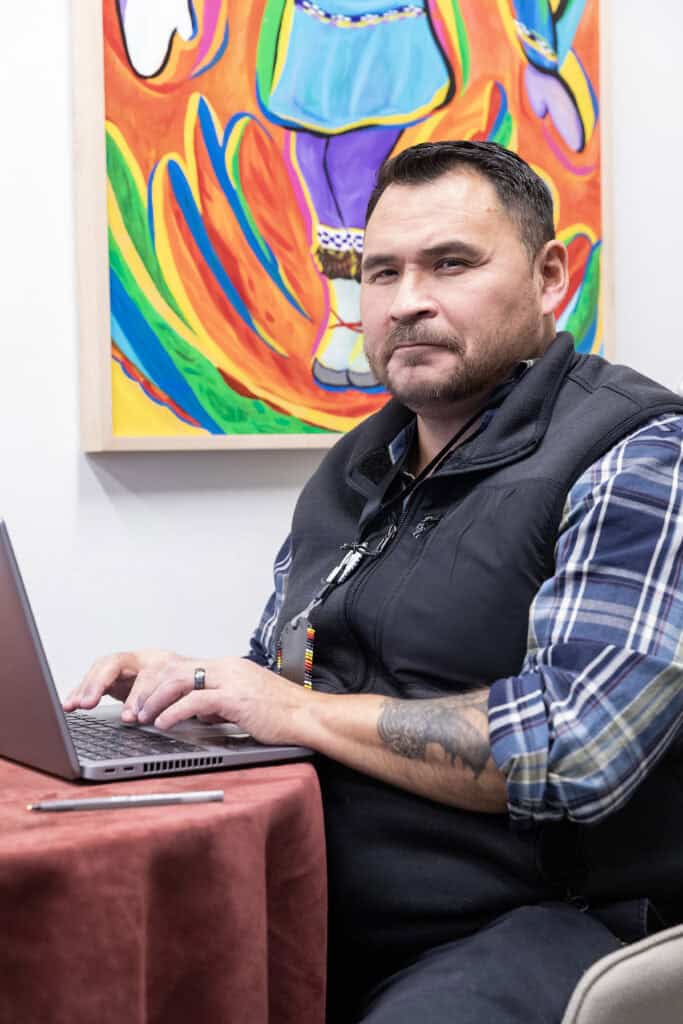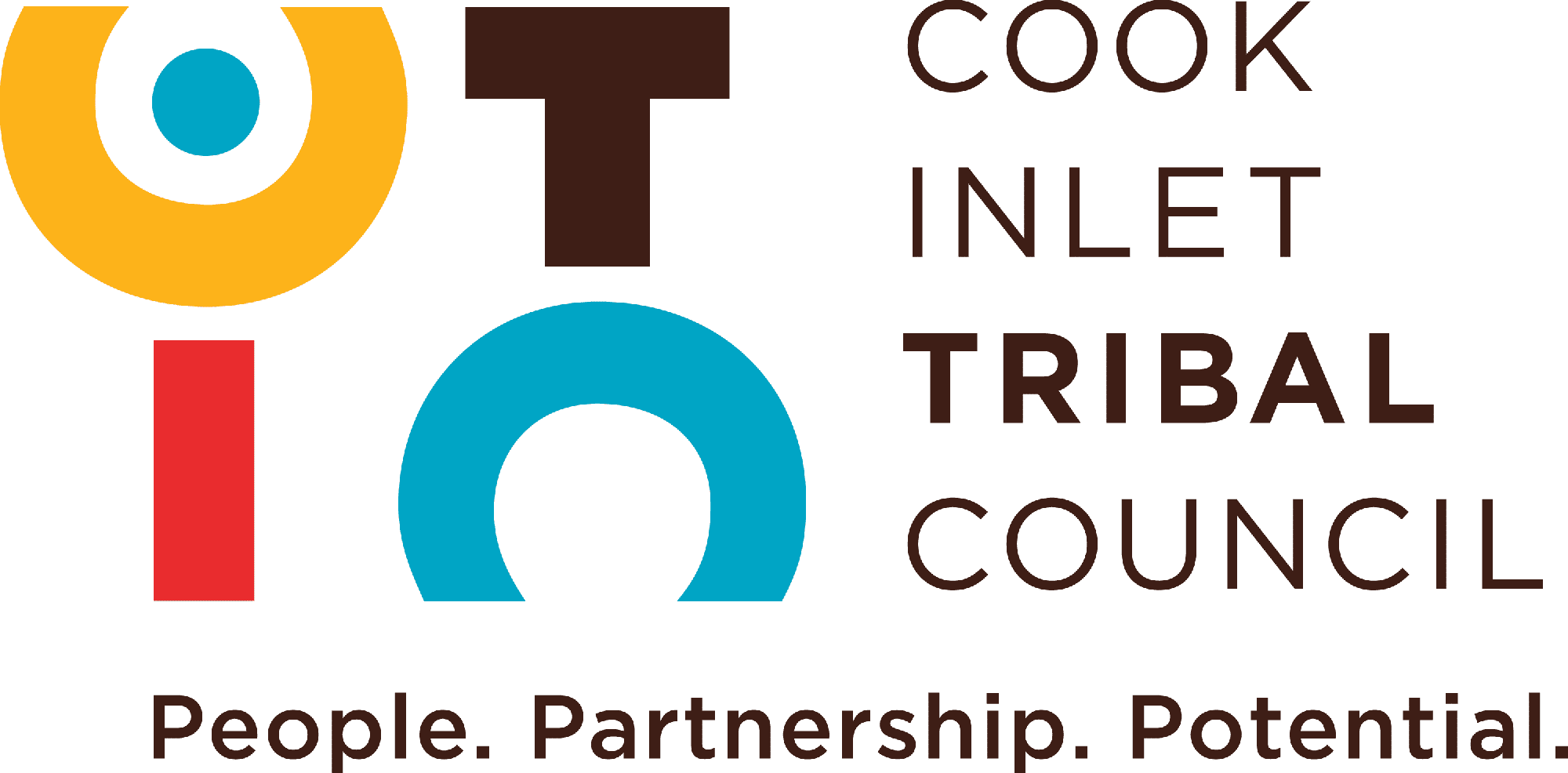08 Jul There from the Beginning
CITC Peer Support Specialists guide those on the path from detox to recovery—and beyond

There’s only one thing CITC’s Recovery and Reentry peer support staff fight over: who gets to work with Southcentral Foundation’s detox group.
“It’s become the most coveted group for the Peers,” said Sarah Chivers, a Peer Recovery supervisor who helped establish a new partnership with Southcentral Foundation (SCF), another of Cook Inlet Region Inc.’s socially driven organizations.
“You’re literally meeting people at the very beginning and helping them know that it’s possible—that there’s life after detox. You get to see the [recovery] process from start to finish, and that is really one of the most amazing things that somebody in recovery could watch happen.”
Bridging services
Thanks to a new grant intended to help individuals going through withdrawal connect with peers who have that lived experience, CITC peer support specialists have been leading twice-weekly detox groups at SCF. The partnership allows the peers to build relationships with individuals who are just starting their recovery journey, creating a stronger link from detox, to assessment, to treatment.
“CITC and SCF both perform really essential parts of that continuum of care for people who are in recovery,” said Katie Schneider, clinical director for detox at SCF.
People seeking recovery from addiction can start with SCF’s withdrawal management services; the organization also provides medication-assisted treatment. CITC, meanwhile, offers assessments and both outpatient and residential recovery support, including counseling, case management, peer support, preparation for employment, and life skills development.

“One of our number one goals is to get as many people as possible to go directly from detox into treatment,” Katie described. “We believe in starting to plan for treatment services not only on the day they’re admitted, but possibly before they’re admitted. So, the more connected [our organizations] are, the more we can facilitate that recovery support.”
Strengthening the link between organizations, she said, can also increase the likelihood that an individual will find success in their treatment because it allows case managers to be more effective champions for their clients. For instance, when a person might not qualify for a program “on paper,” a case manager with a good relationship with another organization can advocate for their client based on that person’s needs and a program’s requirements.
“When [someone is] motivated to change and they’re working so hard, you want people to be in a situation where they’re most likely to succeed,” Katie said.
Learning from lived experience
CITC’s peer support specialists are employees who have gone through recovery themselves. They use their lived experience to support others by leading groups, providing trainings, organizing sober events, and guiding people through the treatment process.
While CITC peers offer plenty of tangible resources to individuals going into SCF detox—like providing transportation or helping them pick up belongings from home before they enter treatment—the most valuable service they offer is that lived experience.
During hour-and-a-half-long group meetings, peers talk with people entering detox; they field questions and share their own stories of entering treatment and working through recovery.
“It’s very scary to detox,” Katie explained. “When you have CITC representatives come and say, ‘I went to treatment, and that was integral to my recovery,’ it helps to alleviate some of that anxiety about going on to that next step.”

She pointed out, too, that hearing “you can do this” from someone who has gone through detox is different than being encouraged by a case manager. “They have insights into how people are feeling that somebody who has not walked that journey is not going to have.”
Peers offer a different perspective on recovery. “Our program has a very heavy medical model, so we spend a lot of time talking to people about their options, making sure they’re safe and stable and have the things they need while they’re going through withdrawal,” Katie described.
“Having the peers around is really beneficial because it lets people see they truly can recover. Here is a living, breathing example of someone who has been in your exact situation and has come out on the other side.”
Keeping a connection
“I just had the privilege of watching my first program participant go from detox, all the way through treatment at Dena A Coy,” shared Sarah. “She graduated her program, and I got to bring her cake, and a card, and her [sobriety] coin.”
Even before a person enters detox, CITC’s peers are already talking to them about what happens later. Detox programs are typically five to seven days, depending on a person’s needs. Afterward, it’s important to help individuals connect to their next step—in most cases, treatment at a residential or outpatient program.
“It can be a long process,” said Amy Urbach, CITC peer support manager. “It’s really hard when people are coming in and they’re like, ‘Hey, I want to go right now,’ and that’s not something that can happen right away. That’s where peers some in. Let’s keep you engaged. Let’s do whatever we can to keep people on that road while they’re waiting.”
For peers, connecting with people just going into detox is a special opportunity. Not only do they have the chance to set people up for continued treatment post-detox, but they get to use their experience to make a difference in the lives of others.
“You get to see the process from start to finish,” Sarah explained. “You’re watching somebody go through this long, arduous process, and—we haven’t forgotten how tough it is, but we’ve learned the coping skills to get through it—and that’s something they’re learning, too.”
Struggling with substance misuse or addiction? Help is available. Connect with CITC’s Recovery and Reentry services here or by calling (907) 793-3200. Our Peer Support helpline is available 24/7 at (907) 793-3646.


